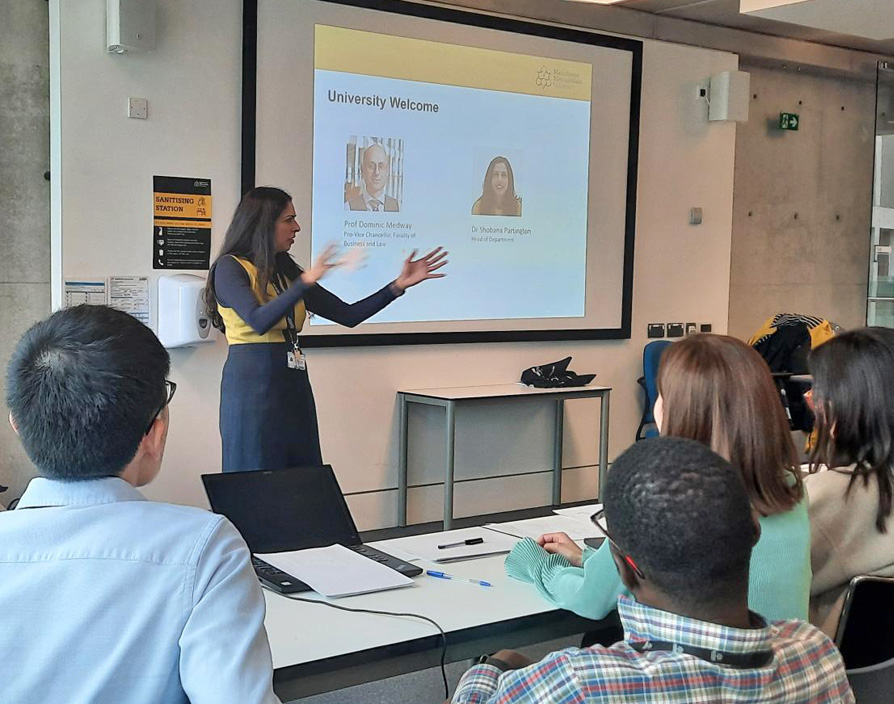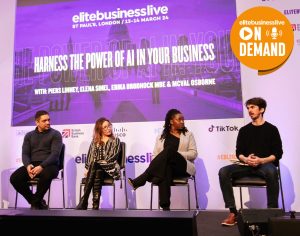Senior lecturer Dr Amna Khan explains how Manchester Metropolitan University is leading the way in championing diversity in degree apprenticeships.
Universities have always had a significant role to play in improving the life chances of young people, while helping to deliver the skills that the country’s economy needs to prosper. We know that for some people, the traditional route of a three-year, on-campus degree course is not an avenue that is either available or suitable for their daily lives.
In 2015 we, at Manchester Metropolitan University, were one of the first to launch degree apprenticeships and are now a leading provider of such courses. Over 2,500 have started on these programmes during the last five years, and we now have almost 550 employers working in partnership with us ‘ including some of the biggest names in tech.
In our Force for Change report (2021), which was launched to mark the five-year milestone of our scheme, the findings confirmed that degree apprenticeships were also acting as a fast-track ladder for social mobility. It confirmed that apprenticeships continue to provide options for those people who would not have chosen a traditional degree. The net result of all this has been a boost in earnings, along with occupational mobility opportunities.
Findings from the report revealed that around 40% of apprentices at Manchester Metropolitan are the first generation in their family to go to university. Those from disadvantaged backgrounds are also benefiting. Some 36% of all Manchester Metropolitan apprentices are from the most deprived areas. This is a trend which has improved over time, from 26% in 2015/16.
This data is even more significant for what we describe as ‘mature’ learners. According to the Index of Multiple Deprivation (IMD), approximately 50% come from the lower half of the IMD range. Manchester Metropolitan is becoming more ethnically diverse, with an increase in Black, Asian and minority ethnic apprentices, which has risen from 10% (2015/16) to 19% (2020/21).
And it doesn’t end there. Around 34% of current Manchester Metropolitan apprentices in science, technology, engineering and mathematics (STEM), are women. This is a substantial improvement on the national undergraduate average of 22%.
Zaman, who is a digital and technology solutions degree apprentice with the Lloyds Banking Group, said: Thanks to my apprenticeship, I have transitioned from a newcomer in the cyber security industry, with no prior work experience, to being certified in cyber security. I now manage a small team of cyber security specialists. This means that in three years I have moved up five grades while working at Lloyds. This has only been possible due to my apprenticeship.
Employers have also welcomed these schemes. Kashif from IBM told me: Degree apprenticeships have enabled IBM to attract diverse talent, which is essential for innovation. Our degree apprentices have proved to be highly successful in terms of their career growth, while adding value to the business. Our apprentices work in a variety of different roles across multiple industries and have been involved in critical projects that have directly impacted the UK. This gives our apprentices a real sense of job satisfaction. They can see how their hard work is contributing to society.
Our First Generation Scholarship Programme continues to support young people who have become the first members of their family to go to university. It is co-funded by the university, as well as donors, and delivers practical support and application guidance to students.
These are young men and women whose parents or guardians did not enjoy the same opportunities when they were teenagers or in their 20s, and therefore unable to access higher education. First Generation Scholars at Manchester Metropolitan receive a bursary of £1,000 in their first year and receive continued professional support throughout their studies.
The university is also involved with a Dragon’s Den-style initiative at a local school. Abraham Moss Community School is a thriving, multicultural community, which prides itself on its harmony. It is based in north Manchester. We have had a long association with the school where we run an annual Dragon’s Den project. Pupils are invited to present innovative ideas to a team that includes members of staff, along with ambassadors from our university’s Business School.
The scheme never fails to deliver outstanding ideas from year nine students. Our meetings involve discussions about business enterprise, its challenges and opportunities. This certainly empowers pupils to think beyond their circumstances. Overall, our degree apprenticeships have embraced diversity, with meaningful, life-changing results to celebrate as a result.
Dr Amna Khan, who is a senior lecturer in ‘Consumer Behaviour and Retailing’, will be at Manchester Tech Week on Thursday April 28th at 1.35pm, when she will take part in a panel discussion. Together with co-panellists she will talk about current company cultures, and how they need to change by putting inclusion first. She is focussed on supporting the next generation of tech talent through her work with Manchester Metropolitan University.
“
Share via:



















































